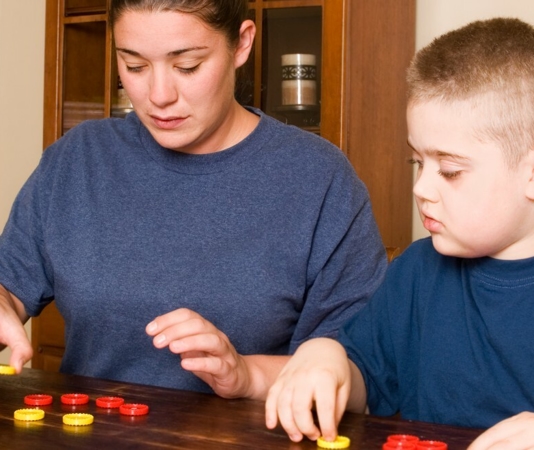An intellectual or developmental disability (IDD) affects every aspect of a person’s life. Over 7 million people in the United States have an intellectual or developmental disability.
What Is an Intellectual Developmental Disability?
Some well-known developmental disability examples include autism and Down syndrome, though those who experience a traumatic brain injury can also develop IDDs. A person who has one of these disabilities may need support with activities of daily living, as well as navigating work, school, and social situations. They’ll also need a trusted person to advocate for them if they’re unable to communicate clearly. Caring for a loved one with an IDD is challenging, but planning for your loved one’s needs and seeking out support benefit everyone involved.
Caretaking for Someone with Intellectual Disabilities
Depending on the level of support need of your loved one’s intellectual disability, they may need personal care, or help with many activities of daily living (ADLs), including but not limited to:
- Personal hygiene and bathing
- Dressing
- Feeding and cooking
- Housekeeping
- Shopping, running errands, and making appointments
- Paying bills and banking
- Taking medications
- Transportation
- Communication
Intellectual disability may mean that your loved one needs help with all of these activities, or only a few of them. In terms of an intellectual disability in adults, many individuals are able to live independently, or at least somewhat independently. Others may require 24-hour care. In either case, getting support for your loved one and yourself is crucial, and communicating clearly will make everything go much more smoothly.
Advocating for a Loved One Living with an Intellectual Developmental Disability
In some cases, your loved one may not be able to communicate their needs, situation, or issues clearly. In those cases, it also falls on their family caregiver to advocate for them. This could mean making doctor appointments and attending them to discuss your loved one’s symptoms, medical history, and needs and understand any instructions from their doctor.
Financial and legal matters might also require support and advocacy from you and any other caregivers. Your loved one should always be able to have an active role in these discussions (if they’re an adult), but the ability to clearly communicate and make decisions on their behalf is essential.
The key is understanding how effective your loved one is at communicating and advocating for themselves. They may not need your help in a social, work, or school situation, and in those cases it’s beneficial to take a step back and let them be more independent. Respecting their needs and boundaries while also ensuring they get the support they need is key.
Caring for a Loved One with IDD: The Importance of Planning Ahead
In many cases, aging relatives are caring for loved ones with intellectual disabilities; current estimates indicate around one million aging caregivers are the primary support for a loved one with an IDD. This number is likely to increase in the coming years, and it makes planning for the future even more important. There are some questions that should be answered as soon as possible to ensure your loved one keeps receiving the care they need:
- Who will care for your loved one if their primary caregiver is no longer able to?
- Who has power of attorney for someone with an intellectual disability?
- Has a legal guardian or conservator been named? This is a person who has the power to remove a person’s decision-making ability in legal, health, or financial matters if they’re no longer able to make choices for themselves.
- Where will your loved one live?
Making these decisions as soon as possible and getting any required legal paperwork in order can save confusion, stress, and complications later on. The National Resource Center for Supported Decision-Making offers a wide range of information, resources, and tools to help guide caregivers through this process.
Get Support While Caring for a Loved One with an Intellectual Disability
You don’t have to do it all alone. A professional and compassionate caregiver from your local Homewatch CareGivers® can provide the assistance you and your loved one need. Whether your loved one requires 24-hour care or occasional respite care services so you can recharge, we’re here to help. We understand that it can be difficult to leave your loved one in someone else’s hands. Rest assured that our caregivers must pass national background checks every year and complete ongoing training to keep their skills sharp.
Contact us today or call 888-404-5191 to learn more about how we can help.





